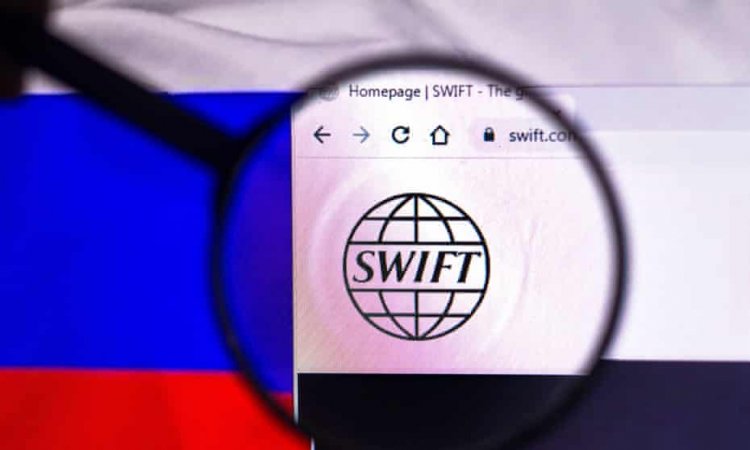What is SWIFT, and how does it relate to Russia?
Because their banks utilize SWIFT to communicate with Russian banks, the United States and Germany stand to lose the most if Russia is completely isolated according to Shagina.

As part of a barrage of penalties aimed at limiting Moscow's capacity to pay for its conflict in Ukraine, the West has committed to suspending some Russian banks from SWIFT, a messaging service that connects financial institutions around the world.
In a joint statement released on Saturday, the US, the European Union, the United Kingdom, and Canada stated they will withdraw "selected" Russian banks from SWIFT to punish Russia for invading its neighbor.
The Western countries stated, "This will ensure that these banks are separated from the international financial system, damaging their capacity to function globally."
What exactly is SWIFT?
The Society for Worldwide Interbank Financial Telecommunication was created in 1973 to replace the telex and is now used to convey secure messages and payment requests by over 11,000 financial institutions.
SWIFT does not transport money throughout the globe. It allows banks to communicate with one another about how to transfer funds across borders. It is crucial plumbing for global finance because there is no universally approved alternative.
The nuclear option of economic penalties is to disconnect a whole country from SWIFT.
Even small actions, though, can have a significant influence. Any bank that isn't connected to SWIFT will have a hard time sending money to other financial institutions, and its customers will find it difficult to conduct business.
Why are only a few banks selected?
The consequence of removing every Russian bank from SWIFT would be enormous.
In a report for Carnegie Moscow Center last year, Maria Shagina, a visiting fellow at the Finnish Institute of Foreign Affairs, said, "The cutoff would halt all international transactions, generate currency volatility, and induce enormous capital outflows."
Former finance minister Alexei Kudrin projected in 2014 when the suspension was proposed in reaction to Russia's annexation of Crimea, that excluding Russia from SWIFT would cause its GDP to decline by 5%.
However, such a bold step would be detrimental to the West.
Because their banks utilize SWIFT to communicate with Russian banks, the United States and Germany stand to lose the most if Russia is completely isolated according to Shagina.
What does SWIFT have to say about it?
SWIFT is situated in Belgium and is managed by a board of 25 members, including Eddie Astanin, chairman of Russia's Central Counterparty Clearing Centre's executive board.
It calls itself a "neutral utility," is incorporated in Belgium, and must adhere to EU legislation.
SWIFT stated in a statement over the weekend that it is "working with European authorities to establish the details of the companies that will be subject to the new measures" and that it is "preparing to comply upon legal instruction."
Has this ever happened before?
After being slammed by Western sanctions in 2014 as a result of its invasion of Crimea, Moscow created its payment system, SPFS. According to Russia's central bank, SPFS now has roughly 400 users. According to Shagina, SPFS presently handles 20% of domestic transfers, although message sizes are limited and activities are restricted to weekday hours.
CIPS, China's budding cross-border interbank payment system, could be a viable alternative to SWIFT. Moscow may be forced to use cryptocurrency as a last resort.
However, neither of these systems has a major global presence, making them unappealing options.

 Boakyewaa Lawrencia
Boakyewaa Lawrencia 



































